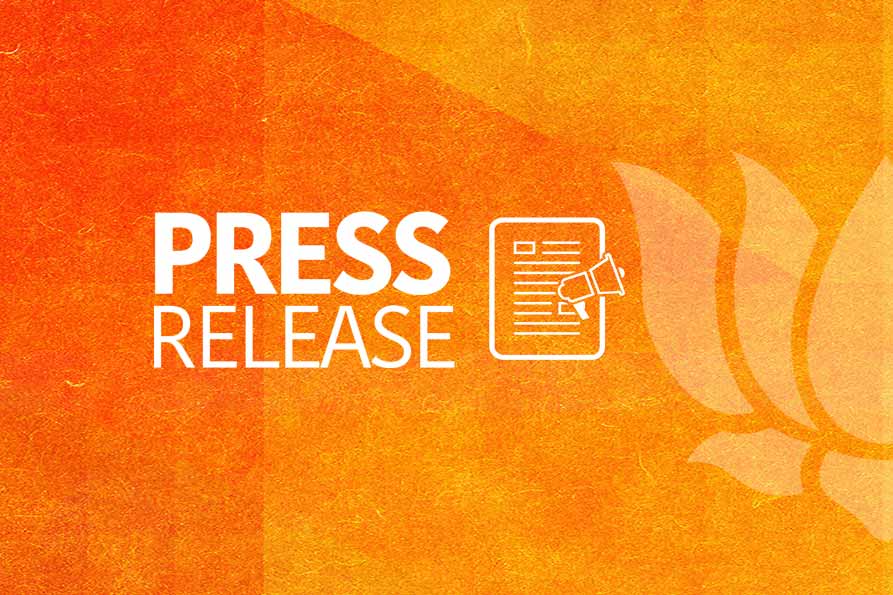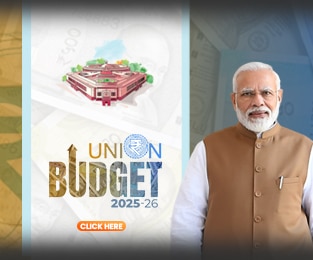
BHARATIYA JANATA PARTY
National Executive Committee Meeting
July 27, 28 & 29, 2001
Parliament Annexe
New Delhi
Resolution on Agra Summit
Prime Minister Shri Atal Bihari Vajpayee's decision to invite General Pervez Musharraf for the Agra Summit was an act of statesmanship, reflective of India's policy of establishing peace and normal relations with Pakistan. The Bharatiya Janata Party has always believed that India and Pakistan cannot live in perpetual hostility. Our country is familiar with Shri Atalji's vision of a peaceful and friendly neighborhood. It was this vision, which guided him to successfully seek improvement of relations with Pakistan when he became Foreign Minister in 1977 in the Janata Party Government. It was the same broad perspective, which prompted him to undertake the Bus Yatra to Lahore in February 1999. And, again, in May this year, transcending Pakistan's betrayal at Kargil, he called upon General Pervez Musharraf to join him on the high road to peace.
The BJP did not expect any dramatic results from the Agra Summit, but it had hoped that some positive steps would emerge from the high-level meeting. However, the obduracy, intransigence, and unifocal approach of the Pakistani side forced a stalemate and brought about an inconclusive end to the Summit. President Musharraf failed to recognize the merit of India's multi-dimensional approach and stuck to his own one-point agenda.
President Musharraf's statements and actions just before and during the visit raised serious doubts about Pakistan's desires to have peaceful relations with India. In an interview to a Dubai-based newspaper, he virtually dismissed the two historic documents on Indo-Pak relations -- the Shimla Agreement and the Lahore Declaration -- as irrelevant, because they did not identify Kashmir as the "core" issue between India and Pakistan. Secondly, he transgressed diplomatic norms by meeting the Hurriyat Conference leaders in New Delhi, despite the host government making it clear that it would not like him to meet them. Thirdly, President Musharraf not only converted an informal breakfast meeting with senior editors in Agra into a media spectacle without consulting or even informing the host government, but also made statements, which were unacceptable to the Indian side. He virtually poured cold water on any prospects of a positive outcome by his injudicious utterances. He described cross-border terrorism promoted by Pakistan in Jammu & Kashmir as a "freedom struggle". Shockingly, he went on to rationalise and condone the killings of innocent people in Jammu & Kashmir by terrorists by comparing the happenings in the State with the situation in Palestine. He also described discussions on economic cooperation and our Government's unilateral confidence-building measures as pointless, unless the "core issue" of Kashmir was resolved.
From what has been stated above, we cannot help but draw the conclusion that General Musharraf used his visit to India in general, and the Agra Summit in particular, to solely address his domestic constituency, which continues to look at the Kashmir issue through the prism of the discredited two-nation theory.
The BJP endorses the Prime Minister's firmly stated view that the Indo-Pak relationship has multiple dimensions with immense potential for mutually beneficial cooperation. The yearning in both countries for progress in trade and economic cooperation, cultural relations and people-to-people contacts cannot be held hostage to the so-called "core issue" of Kashmir. President Musharraf's failure or reluctance to see things in this perspective is unfortunate.
The Party also whole-heartedly congratulates the Prime Minister for reminding Pakistan's President that what lies at the core of the so-called "core issue" of Kashmir is the continuing and illegitimate occupation of one-third of Jammu and Kashmir by Pakistan. Shri Atalji reminded his guest that the problem of Kashmir began with the armed invasion of the State by the so-called tribals, along with Pakistan Army regulars, in October 1947.
The Agra Summit has sent a clear message to the entire world and, in particular, to Pakistan that Jammu and Kashmir is an integral part of India and no compromise on this shall be acceptable. India's firm stand at the Summit also served to project to the entire world that Islamabad's continuing and open support to cross-border terrorism in Jammu & Kashmir is the biggest stumbling block in the normalisation of Indo-Pak relations. Even during, and soon after, the Agra Summit, terrorist violence was unleashed in Jammu & Kashmir resulting in the death of many pilgrims on the Amarnath Yatra and other innocent civilians. This cannot be tolerated and will have to be put down ruthlessly.
As our Prime Minister reminded the Pakistani delegation in no uncertain terms, India has the resolve and the ability to firmly deal with cross-border terrorism. India has successfully overcome the challenge of Pakistan-backed terrorism in Punjab and restored normalcy; we shall similarly overcome the challenge in Jammu & Kashmir. The BJP would like to urge the Government to take all possible measures to strengthen the forces combating the so-called "jehadis", who are, in fact, hired mercenaries. This, indeed, is the principal issue for discussion in so far as Kashmir is concerned, whenever bilateral dialogue resumes.
The Pakistani leader and his Foreign Minister have also spoken of "self determination" of the Kashmiri people. They seem to forget that the people of Jammu & Kashmir have enjoyed democratic freedoms and the right to elect their own representatives for the last fifty years, something denied to their fellow Kashmiris across the border. Pakistan has been under military rule for most of the time since Independence. It is ironic that a military ruler should lecture on the aspirations of the Kashmiri people for self-determination.
The BJP would like to put on record its deep appreciation of the mature and sagacious manner in which Prime Minister Shri Atal Bihari Vajpayee and his senior colleagues handled the Agra Summit. The Prime Minister ensured that India's core interests were not sacrificed in the negotiations with Pakistan. We entirely agree with him that there can be no compromise on the twin issues of cross-border terrorism, backed by religious extremism, and the status of Jammu and Kashmir as an integral part of India.
The BJP believes that efforts to improve relations with Pakistan should continue. However, it must be clearly understood that no meaningful dialogue with Pakistan can be conducted as long as the "jehadi" mentality dominates the Pakistani establishment. There are elements in Pakistan who interpret India's friendly gestures as a sign of weakness and a proof of the success of the Pakistani-sponsored cross-border terrorism. The BJP would like such people to know that India's friendly overtures are indicative of our overwhelming and oft-demonstrated strength and also of our innate desire for peace and friendship with all our neighbors. If Pakistan continues to adopt a negative posture, the Government of India should draw appropriate conclusions and plan for the future accordingly.
To Write Comment Please Login



.gif)





